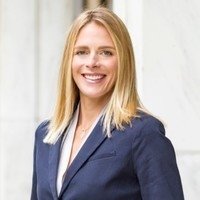Seeing the Unseen: US Virtual Launch of the 2022 UNFPA State of World Population Report
Submit a question
The 2030 Sustainable Development Goals (SDGs) recognize women’s bodily autonomy and gender equality. However, globally from 2015-2019, almost half of all pregnancies were unintended, amounting to roughly 121 million unintended pregnancies each year. Related, nearly one quarter of all women lack bodily autonomy—the ability to make decisions regarding their own health care. These statistics demonstrate that progress is needed to ensure reproductive freedom globally, and to meet the 2030 SDGs. Beyond the personal context, unintended pregnancy has profound costs and consequences to societies and health systems globally. Increasingly, research shows that unintended pregnancy is tied to lower quality of life, increased health care costs, and high rates of maternal deaths.
The Wilson Center’s Maternal Health Initiative, in collaboration with UNFPA, hosted this conversation for the US launch of the 2022 UNFPA State of World Population (SWOP) report, titled Seeing the Unseen: The case for action in the neglected crisis of unintended pregnancy. This year’s report details the steep costs associated with unintended pregnancy—including the cost to a person’s health, education, and future; as well as costs to health systems, workforces, and societies. Panelists discussed the SWOP report and its findings, the importance of addressing and working to reduce unintended pregnancy globally, and key policies and recommendations to mitigate the many costs of unintended pregnancy.
Selected Quotes
Secretary Xavier Becerra, Department of Health and Human Services (HHS) speaking to HHS’s continued commitment to advancing sexual and reproductive health and rights around the world to protect the health of everyone.
“Around the world, we remain committed to investing in high quality, client-centered sexual and reproductive health services that improve women’s well-being, promote gender equality, and ensure women’s control over their bodies and futures. Our commitment to global family planning spans more than five decades. We are dedicated champions of maternal health care and preventing gender-based violence. And mark my words: The United States will continue its efforts to make pregnancy and childbirth safer and meet sexual and reproductive health needs. Because these evidence-based efforts do far more to protect lives, protect families, and protect the health and well-being of everyone.”
Representative Chrissy Houlahan, US House of Representatives (Pennsylvania, 6th Congressional District)
"In my role on the House Foreign Affairs Committee, I'm very proud to be the lead sponsor of The Support UNFPA Funding Act to ensure that the vital work of this agency can continue."
“This [unintended pregnancy] is not a simple problem, nor is it just a women’s issue. This is a personal issue, a health issue, a human rights issue, a development issue, a humanitarian issue and it’s all on us to work towards solutions to all of these issues.”
“When we invest in global efforts to support and protect women and families, we are in fact investing in national security too.”
“Wherever women can access quality health services and thrive—stability, security, and peace will follow.”
Sarah Craven, Director, Washington D.C. Office, UNFPA
"Half. This is the proportion of all pregnancies that are unintended. That is 121 million pregnancies every year. One in two pregnancies take place in the bodies of people who did not affirmatively choose pregnancy or motherhood, who are not open to the prospect of having a child at the time with that partner in those circumstances. For these women the most life altering reproductive choice, whether to become pregnant or not, is no choice at all. This is an unseen crisis unfolding right before our eyes."
“This is a report about whether and how much the world values women and girls beyond their reproductive capacities. It is about what happens before a pregnancy: the information not received, the contraceptives not used, the conversation not had between partners. It is about hostility to, and misinformation about contraception use that undermines women’s ownership of their own bodies. And it is about the incalculable, intergenerational costs borne by women, girls, families, communities, countries and the world.”
Gayatri Patel, Vice President of Advocacy and External Relations, Women’s Refugee Commission
"This report really goes beyond sexual and reproductive health and rights as an issue alone, but really emphasizes and recognizes the linkages to development, gender equality, education, and economic empowerment."
“The report really makes it clear that there’s a real connection between practices like intimate partner violence, sexual violence, and unintended pregnancies. We all know that GBV is a violation of human rights but also a symptom of gender inequality.”
“Our role [at Women’s Refugee Commission] is really as a research organization and advocacy organization, so in our work we see firsthand the harmful impacts that unintended pregnancies have on displaced women, on refugee women, women and girls and others from marginalized groups and how factors such as displacement can really exacerbate these repercussions.”
“Access to long-acting, reversible contraceptives would be a really important policy mechanism and a policy objective to prioritize. Going along with this theme of unintended pregnancies as caused by a range of factors related to gender equality, I think we can look more broadly at policies that advance agency, bodily autonomy, gender equality in a number of ways.”
Gilda Sedgh, Advisor, State of the World Population Report, UNFPA
“This report helps us see the women behind all of these different statistics and facts.”
"Every fertile woman can experience an unintended pregnancy, so it is not a crisis of a few but is a crisis that we all share."
“Unintended pregnancy is higher in those countries with high gender inequality. That is where girls don’t get as much schooling as boys, where women don’t play as large a role in the workforce, and where they’re not as well represented in government. And it looks like unintended pregnancy is both a cause and a consequence of gender inequality, but it is a cycle that can and should be broken.”
Bwire Moses, Executive Director, Peer to Peer Uganda
“[The report] brings a lot of evidence to influence and ensure where we are as a world in terms of unintended pregnancies, and also realizing that we are failing to learn from history.”
"The report brings a lot of evidence to demonstrate where we are as a world in terms of unintended pregnancy, and it also shows that we are failing to learn from history."
“[Unintended pregnancy] is also purely influenced by the lack of financial independence by most of women of working class who are not able to—one, afford the contraceptive methods of choice when they try to access them from the health facilities—but then also secondly their lack of autonomy to be able to access programs that are empowering them.”
“Being able to have the financial independence for all women and girls of reproductive age, both in and out of schools, so that they are able to have children by choice, not by chance.”
<"It is essential to have financial independence for all women and girls of reproductive age, both in and out of schools, so that they are able to have children by choice, not by chance."
Speakers


Moderator

Panelists
Hosted By

Maternal Health Initiative
Despite global attention and calls to action, women continue to die while giving birth. The Maternal Health Initiative (MHI) leads the Wilson Center’s work on maternal health, global health equity, and gender equality. MHI works to connect issues critical to global health and women’s empowerment to foreign policy and US leadership, with a focus on improving the lives of women, adolescents, and children around the world. Through collaborations with policymakers, academia, donors, and practitioners, MHI produces cutting-edge research, fosters cross-sectoral engagement, increases awareness of key issues, and informs US leadership on solutions for ending maternal and newborn deaths and addressing gender-based global health issues. Read more


Environmental Change and Security Program
The Environmental Change and Security Program (ECSP) explores the connections between environmental change, health, and population dynamics and their links to conflict, human insecurity, and foreign policy. Read more

